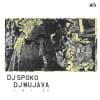In case you hadn’t heard, FruityLoops and brand X Pentium II’s are the weapons of the future and Africa is the battlefield. DJ Cleo and DJ Mujava—who figured heavily in last week’s Township Palmcast—are just 2 of a generation of rising Afro-electric stars putting cheap digital technology to transformative use. In the same category you can include Znobia and his kuduro contemporaries, coupe decale one-man bandsmen like Bablee, not to mention the fools transforming traditional Berber music with auto-tune software and reggaeton drums somewhere in Morocco’s cannabis-infested Rif valley.
Trying to document this phenom as it happens is one of my things, which reminds me, I’ve been meaning to post the interview from Mujava’s Gen F in FADER Number 58. Read the profile as an intro, use last weeks blend as a soundtrack along with these youtube clips and jump in:
DJ Mujava, “Moribo”
DJ Mujava “Township Funk”
What’s your full name?
Elvis Maswanganyi.
So start me at the beginning; what were your early musical influences?
I like all the types of music there is, like the jazz…everything, but it’s really uh IT, computers that got me started. Since maybe 10, 9 years ago, back in like 2000, I was into computers and stuff my brother went to the states and was able to get me software so I started to make my own tracks [on a no-name Pentium II PC]. I would take the songs to the drivers of my township. From them it went through other townships ‘til it was recognized by community radio stations…til it got me a deal on Sheer music which is a big company from Jo’burg.
How old were you when you started making music?
When I made my first track I was 16-years-old — seven years back.
Are you from Pretoria originally?
Yeah, [from the black township] Attridgeville.
What’s the music scene in Pretoria like?
Out in Jo’urg they mostly listen to deep house…Pretoria, we more listen to more tribal music; more drums more congas…we focus more on drums.
I know “Township Funk” has been circulating in SA for a few years now, is that the first thing you released?
I did make a couple of songs before that “Township Funk” project…The style was similar but its just that the music was underground ‘til “Township Funk” was released worldwide, it was the first thing that was really available in record shops and everywhere.
People from outside SA associate “Township Funk” with the kwaito scene—do you agree with that description?
Oh no, kwaito is more like hiphop but in the township language, which is more like Zulu, more from Soweto — Soweto is the most populous township in Jo’burg. [Kwaito] it goes more to the tempo of 100. So “Township Funk,” it’s more like to the tempo of house music, it’s house music mixed with electronic.
Do you listen to a lot of house or techno from outside SA?
There’s not lot of South African house but I do listen to a lot of international music. I think international music is what influenced me to be in the music industry. More like European stuff like there’s the one DJ Gregory song called “Soldiers?” A couple of guys, you know, but I forgot the names…
How long were you making music before linked with Sheer?
It was like 3-4 years
What’s Sheer’s position in SA?
Sheer music is a company for pure house music, more like they license international music, you know Master At Work, Louie Vega? And other music. They also do [separate labels] for other kinds of music. There’s Sheer Hiphop, Sheer Africa where they do more Afropop or traditional music…
So has “Township Funk” made you more recognizable outside Pretoria than you are at home?
No, my music is just big in Pretoria. Pretoria is where I’m getting more support, where the music is being produced. After Pretoria, it spread out to all over, the whole of South Africa.
So do you also work as a DJ?
Yeah, but I came in the music industry as a producer before I DJed.
Do you travel? Do you have a residency?
My residency is at a club called Control [also Times Four and Homebase] and also I do travel on gigs. Most gigs that are coming are festivals; summer festival, winter, every season that comes they make a party to make a celebration.
If kwaito has more of a Zulu affiliation, what’s your background?
Shona.
Does that culture or language influence your music, the way Zulu comes through in kwaito?
Kwaito is more of Zulu language and speak[ing] of what they feel or experience in the townships…
Do you ever make vocal music?
No, it all depends on who I collaborate with. It all depends on who hears my style and does something different because I used to do different vocal music, there’s a lot of music I’ve produced — gospel, hiphop.
What does Mujava mean?
It’s a nickname from high school, just from friends and roommates. It means a cool person, a person who’s fresh or stylish. It’s more like street language more like a ghetto slang.
What are you working on now?
I’m busy in making remixes, for some international guys, I don’t know their names. I’m getting more gigs internationally too; London, Switzerland, Holland. I’m doing more production, just trying to introduce my style to more people out there.
I heard there’s a possibility you might be doing an LP length project for Warp as well?
Hezzit?

